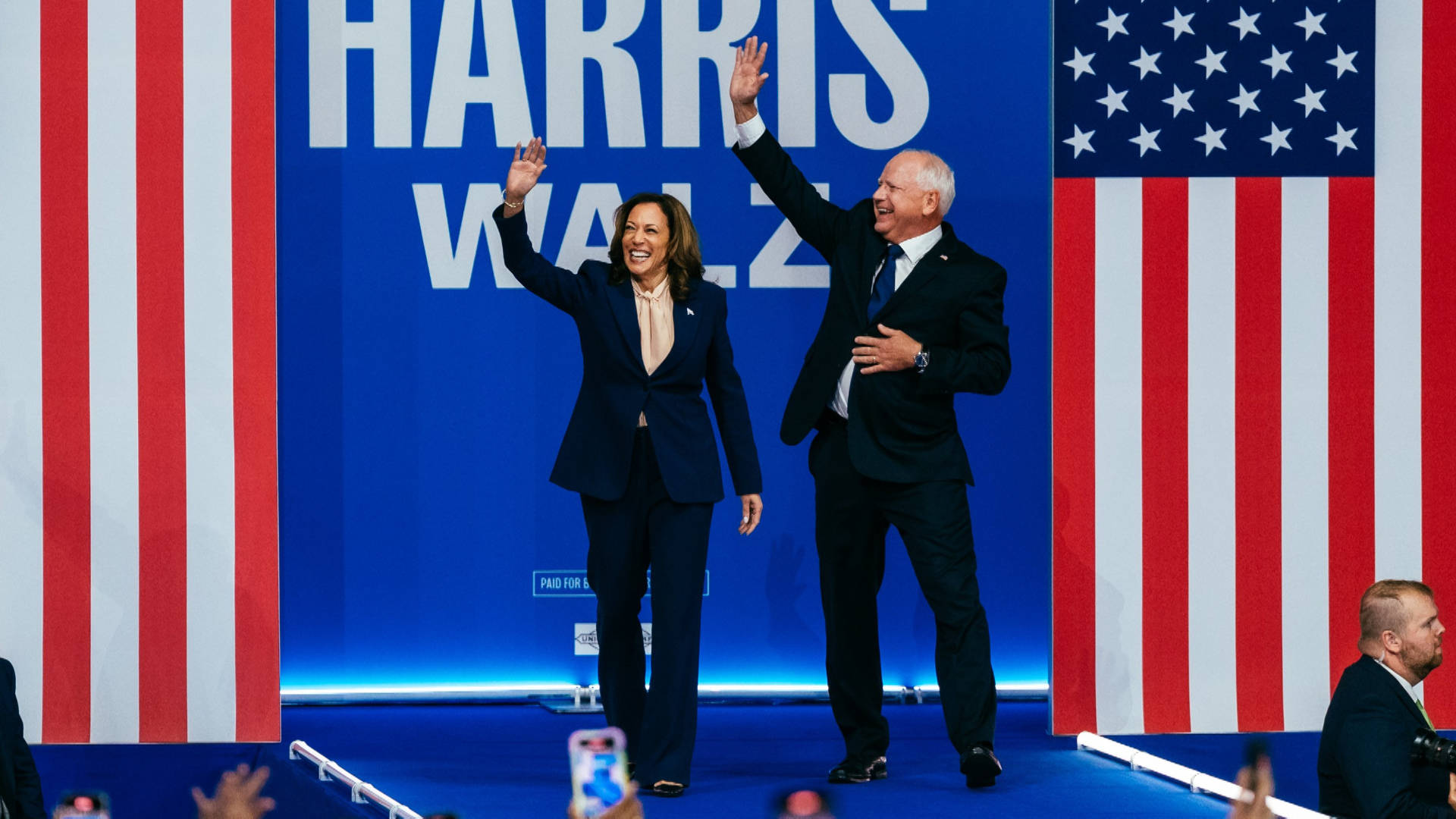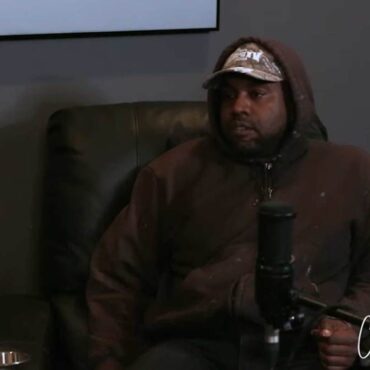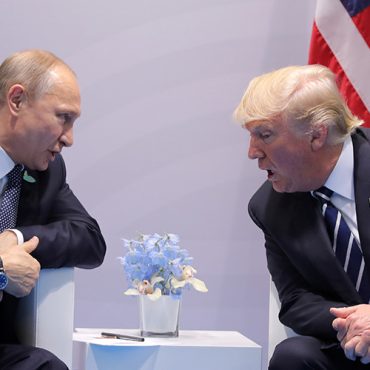This is a rush transcript. Copy may not be in its final form.
AMY GOODMAN: For more on where the new Democratic vice-presidential candidate and Minnesota Governor Tim Walz stands on Israel-Gaza and pro-Palestinian protests, we’re joined now by Asma Mohammed, campaign manager for Vote Uncommitted Minnesota. She’s the co-chair of the Minnesota uncommitted delegation, one of the 11 Minnesota uncommitted delegates going to the Democratic National Convention.
Asma, welcome to Democracy Now! You’re usually in Minnesota but joining us today from Chicago. What are your governor’s positions, as you come from Minnesota and he is the governor of Minnesota?
ASMA MOHAMMED: Yeah. Governor Walz has been pretty clear in his support for Israel in the past, and we know that. In the past, he has refused to meet with Palestinian families who wanted to talk about Gaza. He has refused to divest from Israeli bonds and banks. And we know that.
And at the same time, we know that the decision ultimately relies with Kamala Harris. So we don’t necessarily want to meet with him, but we do want to meet with the vice president, because she has shown a willingness to learn and to move.
And we know that Tim Walz has obviously done a little bit of the same, right? He has moved in the NRA. He had an A rating with the NRA; now he has an F rating with them. So, he has shown a willingness to listen to the people, so we are hopeful there, but in the past, he has definitely been pro-Israel in his governorship.
JUAN GONZÁLEZ: And, Asma, you’re one of the 11 Minnesota uncommitted delegates who will be going to the Democratic National Convention. What will you be calling for there?
ASMA MOHAMMED: So, as one of the 11 delegates coming from Minnesota uncommitted, we are pushing for Harris delegates that want a ceasefire to join us in calling for a ceasefire and an arms embargo against Israel. And we want a meeting with Vice President Harris so we can talk to her to get a commitment for an arms embargo and a ceasefire, because we know right now, going into November, that we cannot win this election without the nearly 1 million voters who voted alongside us during the primaries. During the primaries, 46,000 Minnesotans voted saying that they wanted the war in Gaza to stop. Right? And we know that those people may not even show up to the polls in November. They have no reason to show up if there is no ceasefire and no arms embargo by November. And we want to remind Vice President Harris of that, so we are asking for a meeting at the DNC with her and uncommitted delegates.
AMY GOODMAN: Asma Mohammed, I know there’s been a demand by the uncommitted movement, uncommitted delegates who are going to be in Chicago at the DNC, for Dr. Tanya Haj-Hassan to be able to speak from the stage, one of the many American doctors who have volunteered in Gaza. Is that still a demand? And if you can also talk about what are the plans for the Democratic National Convention?
ASMA MOHAMMED: Absolutely. So, Dr. Tanya Haj-Hassan, again, is a doctor who went to Gaza and got to see the atrocities firsthand. We just want five minutes of her on stage at the DNC to share what she saw with the people at the convention, to share with delegates that they have power to push for a ceasefire, and that without an arms embargo, a ceasefire doesn’t matter, because those are U.S. weapons that we continue to supply. So, I think our ask is very clear. We want people to hear from a doctor who has really no political agenda beyond telling people what she witnessed.
And then, beyond that, we want Harris delegates — because, believe it or not, there are Harris delegates who really do support a ceasefire. Eighty percent of Democrats support a ceasefire. And we want to remind the party and the party leadership of that. So we’ve put an ask out to Jaime Harrison, the chair of the DNC. We’ve put an ask out to the DNC. And we think that they are amenable to these demands. And we are hopeful that we are going hear back from the vice president on this.
JUAN GONZÁLEZ: And, Asma, it’s hard to say, but what do you feel the — do you feel that the uncommitted movement had an impact on Kamala Harris in her choice of Tim Walz as a running mate?
ASMA MOHAMMED: I think that the uncommitted movement absolutely had an impact on Kamala Harris choosing Tim Walz, because, I mean, first things first, we have the largest uncommitted delegation in the country. And Tim Walz had nice things to say about the uncommitted delegation. He pointed out that we were sharing our voices and that our voices should be heard by the candidate. At that time, he had no idea whether or not he was — he had no idea that he would ever be considered for VP, because at that time President Biden was still in the running. And so, I think that that was a part of it.
And the other thing I think that’s really important is that Shapiro wasn’t kind to protesters. He wasn’t kind. He really wasn’t supportive of anyone that was talking about Gaza. He had his own, I think, scandals beyond that. And more than anything, I think Tim Walz was like a noncontroversial pick. But I do think that we had an influence.
And I think that the choice of Walz was made in good faith, to show young voters, Muslim voters, people that were really feeling that they were not being heard by the Harris campaign that, “Here, look, this is for you.” It, I think, was a gift for a lot of people that were feeling like, “If it’s Shapiro, I’m out. I’m done with this campaign,” and, because of the Walz pick, are feeling a little bit more energized.
And I don’t think that’s the same for everyone, especially for people from Minnesota who have felt, you know, the impact of his pro-Israel policies or felt the impact of the National Guard being called in in 2020 or on Line 3 protesters. But I still think that it felt like a noncontroversial pick and is a reminder that Kamala Harris is different.
AMY GOODMAN: Asma Mohammed, we want to thank you for being with us, campaign manager for Vote Uncommitted Minnesota. And we want to thank Branko Marcetic, Jacobin staff writer, his new piece headlined “The Tim Walz VP Pick Shows America’s Politics Are Changing.”
Next up, we go to Jeremy Scahill with Drop Site News about his new report, “’Something came from the outside’: An Eyewitness Account of the Aftermath of Ismail Haniyeh’s Assassination.” Stay with us.











Post comments (0)